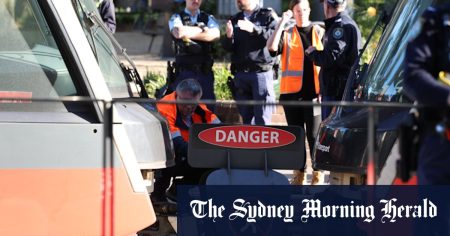The burning of a Melbourne synagogue in December 2024 sparked international condemnation and raised concerns about rising antisemitism. Israeli Prime Minister Benjamin Netanyahu directly linked the incident to Australia’s recent vote at the United Nations, a vote perceived by Israel as unfavorable. Though the exact nature of the UN vote wasn’t specified in the provided context, Netanyahu’s statement implied that Australia’s position had contributed to a climate of hostility towards Israel and its supporters, ultimately culminating in the attack on the synagogue. This connection drew criticism and sparked debate within Australia and internationally, with some accusing Netanyahu of exploiting a tragic event for political gain, while others voiced concerns about the potential impact of political discourse on acts of violence and intolerance.
The incident highlighted the delicate balance between freedom of expression and the responsibility to avoid inciting hatred and violence. Netanyahu’s statement, whether intended or not, risked inflaming tensions and fueling further animosity. Attributing the act of arson solely to Australia’s UN vote oversimplified a complex issue with likely multifaceted roots. While political discourse can undoubtedly contribute to societal attitudes, directly connecting a specific policy decision to an act of violence requires careful consideration and thorough investigation. Prematurely assigning blame without conclusive evidence can exacerbate existing divisions and hinder constructive dialogue.
The attack on the Melbourne synagogue underscored the rising tide of antisemitism globally and the specific security concerns faced by Jewish communities. This incident was not an isolated event; rather, it reflected a broader pattern of increasing antisemitic incidents worldwide, ranging from vandalism and harassment to physical violence and threats. The vulnerability of religious institutions and the need for increased security measures became starkly apparent. The incident served as a sobering reminder of the importance of vigilance and the ongoing need to combat prejudice and hatred in all its forms. The act itself represented not just an attack on a building, but an assault on the principles of religious freedom and community safety.
The response to Netanyahu’s statement varied. Some within Australia echoed his concerns about the potential consequences of anti-Israel sentiment, while others vehemently rejected his linkage of the synagogue burning to the UN vote. This divergence of opinion underscored the complexities of the Israeli-Palestinian conflict and its reverberations on the global stage. Australia’s own internal political landscape was impacted, with debates arising regarding the nation’s foreign policy stance and its commitment to combating antisemitism within its borders. The incident forced a renewed focus on the need for domestic policies that protect vulnerable communities and address the root causes of prejudice.
Internationally, the reaction to Netanyahu’s comments was equally diverse. Some international observers supported his assertion, viewing the synagogue burning as a direct consequence of growing anti-Israel sentiment fostered, in their view, by international bodies like the UN. Others criticized Netanyahu for politicizing a tragedy and for potentially exacerbating tensions. The incident highlighted the challenges of navigating complex geopolitical issues and the potential for misinterpretations and misrepresentations in the international arena. The event served as a reminder of the importance of diplomatic efforts to de-escalate tensions and promote understanding.
In the aftermath of the synagogue burning, several crucial questions remained. What were the precise motivations of the perpetrators? What role, if any, did political discourse and international relations play in the incident? How could similar incidents be prevented in the future? Addressing these questions required a thorough and impartial investigation, open dialogue within and between nations, and a renewed commitment to combating all forms of intolerance. The Melbourne synagogue burning served as a stark reminder of the fragility of peace and the ongoing need for vigilance and understanding in an increasingly interconnected world. The incident highlighted the necessity of robust community engagement, interfaith dialogue, and educational initiatives to combat prejudice and promote tolerance and respect.










